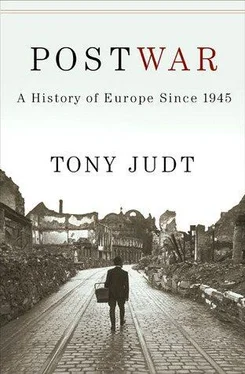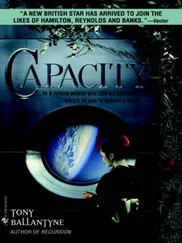Keeping citizens safe is what states do. And there was no sign that Brussels (the European Union) would or could take on this responsibility in the foreseeable future. In this vital respect the state remained the core legitimate representative of its citizens, in a way that the transnational union of Europeans, for all its passports and parliaments, could not hope to match. Europeans might enjoy the freedom to appeal over the heads of their own governments to European judges, and it remained a source of wonder to many that national courts in Germany or Britain complied so readily with judgments emanating from Strasbourg or Luxembourg. But when it came to keeping the gunman and the bomber away, responsibility and thus power remained firmly in Berlin or London. What, after all, should a citizen of Europe do if her house were fire-bombed? Call a bureaucrat?
Legitimacy is a function of capacity: it is in part because the disarticulated, ultra-federal state of Belgium, e.g. has sometimes appeared unable to keep its citizens safe that its legitimacy has been called into question. And although the capacity of the state begins with arms it does not end there, even today. So long as it is the state—rather than a trans-state entity—which pays pensions, insures the unemployed and educates children, then that state’s monopoly of a certain sort of political legitimacy will continue unchallenged. Over the course of the twentieth century the European nation-state took on considerable responsibilities for its citizens’ welfare, security and well-being. In recent years it has shed its intrusive oversight of private morality and some—but not all—of its economic initiative. The rest remains intact.
Legitimacy is also a function of territory. The European Union, as many observers have noted, is an utterly original animal: it is territorially defined without being a consistent territorial entity. Its laws and its regulations are territory-wide, but its citizens cannot vote in each other’s national elections (while being free to cast their vote in local and European ballots). The geographical reach of the Union is quite belied by its relative unimportance in Europeans’ daily affairs when compared to the country of their birth or residence. To be sure, the Union is a major provider of economic and other services. But this defines its citizens as consumers rather than participants—‘a community of passive citizens… governed by strangers’—and thus risks provoking unflattering comparisons with pre-democratic Spain or Poland, or the quiescent political culture of Adenauer’s West Germany: unpromising precedents for such an ambitious undertaking.
Citizenship, democracy, rights and duty are intimately bound up with the state—particularly in countries with a living tradition of active citizen participation in public affairs. Physical proximity matters: to participate in the state you need to feel part of it. Even in an age of super-fast trains and real-time electronic communication it is not clear how someone in Poimbra, say, or Rzeszow, can be an active citizen of Europe . For the concept to retain any meaning—and for Europeans to remain political in any useful sense—their reference for the foreseeable future will remain Lisbon, or Warsaw: not Brussels. It is not by chance that in the modern age giant states—China, Russia, the US—have either been governed by authoritarian rule or else have remained resolutely centrifugal, their citizens more than a little suspicious of the federal capital and all its works.
Appearances, then, were misleading. The European Union in 2005 had not superceded conventional territorial units and would not be doing so for the foreseeable future. Six decades after Hitler’s defeat, the multiple identities, sovereignties and territories that together defined Europe and its history certainly overlapped and inter-communicated more than at any time in the past. What was new, and thus rather harder for outside observers to catch, was the possibility of being French and European, or Catalan and European—or Arab and European.
Distinctive nations and states had not vanished. Just as the world was not converging on a single ‘American’ norm—the developed capitalist societies exhibited a wide range of social forms and very different attitudes toward both the market and the state—so Europe too contained a distinctive palate of peoples and traditions. The illusion that we live in a post-national or post-state world comes from paying altogether too much attention to ‘globalized’ economic processes… and assuming that similarly transnational developments must be at work in every other sphere of human life. Seen uniquely through the lens of production and exchange, Europe had indeed become a seamless flow chart of transnational waves. But viewed as a site of power or political legitimacy or cultural affinities Europe remained what it had long been: a familiar accumulation of discrete state-particles. Nationalism had largely come and gone; [413]but nations and states remained.
Considering what Europeans had done to one another in the first half of the twentieth century, this was rather remarkable. It certainly could not have been predicted from the rubble of 1945. Indeed, the re-emergence of Europe’s battered peoples and their distinctive national cultures and institutions from the wreckage of the continent’s thirty years’ war might well be thought an even greater achievement than their collective success in forging a transnational Union. The latter, after all, had been on various European agendas well before the Second World War and was if anything facilitated by the devastation wrought by that conflict. But the resurrection of Germany, or Poland, or France, not to speak of Hungary or Lithuania, had seemed altogether less likely.
Even less predictable—indeed quite unthinkable just a few short decades before—was Europe’s emergence in the dawn of the twenty-first century as a paragon of the international virtues: a community of values and a system of inter-state relations held up by Europeans and non-Europeans alike as an exemplar for all to emulate. In part this was the backwash of growing disillusion with the American alternative; but the reputation was well earned. And it presented an unprecedented opportunity. Whether Europe’s burnished new image, scrubbed clean of past sins and vicissitudes, would survive the challenges of the coming century, however, would depend a lot on how Europeans responded to the non-Europeans in their midst and at their borders. In the troubled early years of the twenty-first century that remained an open question.
One hundred and seventy years earlier, at the dawn of the nationalist era, the German poet Heinrich Heine drew a revealing distinction between two sorts of collective sentiment: ‘We [Germans]’, he wrote,
were ordered to be patriots and we became patriots, for we do everything our rulers order us to do. One must not think of this patriotism, however, as the same emotion which bears this name here in France. A Frenchman’s patriotism means that his heart is warmed, and with this warmth it stretches and expands so that his love no longer embraces merely his closest relative, but all of France, the whole of the civilized world. A German’s patriotism means that his heart contracts and shrinks like leather in the cold, and a German then hates everything foreign, no longer wants to become a citizen of the world, a European, but only a provincial German.
France and Germany, of course, were no longer the critical references. But the choice posed by Heine’s two kinds of patriotism speaks quite directly to the contemporary European condition. If the emerging Europe were to take a ‘Germanic’ turn, contracting ‘like leather in the cold’ to a defensive provincialism—an eventuality suggested by the referendums in France and the Netherlands in the spring of 2005, when clear majorities rejected the proposed European ‘Constitution’—then the opportunity would be missed and the European Union would never transcend its functional origins. It would remain no more than the sum and highest common factor of its members’ separate self-interests.
Читать дальше












